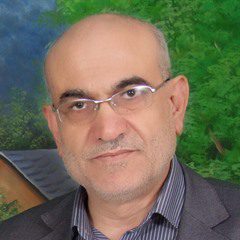This is perhaps the first time that we have had direct access to the ideas of Jared Kushner, the adviser and son-in-law of US President Donald Trump, regarding the Palestinian issue. He is, apparently, the engineer behind what has become known as the “deal of the century”.
Kushner’s thoughts came in a lengthy interview with Al-Quds newspaper, published a few days ago. He revealed his ideas after the tour of the region that he has just made with Trump’s other Middle East envoy, Jason Greenblatt.
“I don’t want to speak about specifics of the deal we are working on,” Kushner explained, “but like I said in my speech in Jerusalem, I believe that for a deal to be made, both parties will gain more than they give and feel confident that the lives of their people will be better off in decades from now because of the compromises they make.”
Read: Kushner, Greenblatt and deceptive endeavours
Throughout the entire interview, it is clear that Kushner was talking as if it is all a business deal. That is what it is for the Palestinians, but not the Israelis, because it is the Palestinians who have to make concessions in order to live. Life for the other side is, of course, “prosperous”, especially since in addition to economic progress, the Israelis are provided with a distinctive security situation provided by the nominally autonomous Palestinian Authority.
In all seriousness, Kushner assumes that the Palestinian people actually accept this economic proposition, a presumption that adds audacity to ignorance, because the Palestinians have never presented their case as if in a commercial market. Even if some of them have agreed to accept this game in some form — via the authority that provides security services for the occupation in exchange for its existence — the masses have not and will not accept it in any form.
“At the end of the day, I believe that Palestinian people are less invested in the politicians’ talking points than they are in seeing how a deal will give them and their future generations new opportunities, more and better paying jobs and prospects for a better life,” added Kushner. “The actual deal points are between the Israelis and the Palestinians, but the economic plan we are working on can show what comes as part of a deal when it is achieved with some massive investments that will extend to the Jordanian and Egyptian people as well.”
Read: Kushner and Greenblatt support Israeli measures at Gaza border, claims Netanyahu
Trump’s envoy is clearly, therefore, also bargaining with the Jordanians and the Egyptians, especially the former, because the essence of his proposals may establish the so-called “alternative homeland” plot at a later date.
When the journalist asked him again about the political side of the plan, he replied by saying that the traditional core issues are essential and we focus on them extensively with a strong appreciation of the historic differences between the two sides. “We are committed,” Kushner insisted, “to finding a package of solutions that both sides can live with.” However, he followed that immediately by saying, “Simply resolving core issues without creating a pathway to a better life will not lead to a durable solution.”
Those who read the lengthy interview with Kushner and what I have mentioned above will understand that he is only a young student in [Benjamin] Netanyahu’s school. On Sunday, Haaretz said that the details of the “political” deal are all taken from the Israeli Prime Minister’s ideas, such as the idea of “economic peace” which he proposed two decades ago.
Read: Trump adviser Kushner criticises Abbas, says US peace plan near
Importantly, this suggests that the “deal of the century” may not be final if it cannot be passed at this stage; it may be a temporary arrangement, especially the formula put forward by Netanyahu in the past. In other words, the Palestinian leadership and the Arab regimes behind it, may not be forced to declare their immediate acceptance of relinquishing Jerusalem, for example, as it can be left to a later stage due to its sensitivity. In the meantime, it will continue to be Judaised.
![Palestinian Muslims perform the last Friday Prayer in Muslims' holy fasting month of Ramadan at Al-Aqsa Mosque Compound in Jerusalem on June 08, 2018 [Mostafa Alkharouf / Anadolu Agency]](https://i0.wp.com/www.middleeastmonitor.com/wp-content/uploads/2018/06/20180608_2_30798084_34472379.jpg?resize=920%2C613&ssl=1)
Palestinian Muslims perform at Al-Aqsa Mosque Compound in Jerusalem on 8 June 2018 [Mostafa Alkharouf / Anadolu Agency]
Meanwhile, Israel’s relations with the Arab states are being normalised and the conflict is being reduced to a border dispute. This is sometimes called the regional solution.
#Palestine
Of course, this is more in line with the essence of the ideological Zionist proposal, because Netanyahu will not accept any part of the occupied West Bank being classed as Palestinian land. Such a compromise on his part would undermine the quasi-religious Zionist narrative of the conflict, so all that is left for the Palestinians would be self-governance.
This is a despicable and dangerous deal. While some may promote it by calling it a temporary agreement that does not imply concessions over the national constants, we must be very careful. The Palestinians have to be aware of the truth behind the plot, regardless of whether it is presented as temporary or final.
This article first appeared in Arabic on the Palestinian Information Centre on 27 June 2018
The views expressed in this article belong to the author and do not necessarily reflect the editorial policy of Middle East Monitor.

![Israeli Prime Minister Benjamin Netanyahu (R) meets Donald Trump's son-in-law and Senior Advisor Jared Kushner [Haim Zach/Anadolu Agency]](https://i0.wp.com/www.middleeastmonitor.com/wp-content/uploads/2018/06/2018_6-22-Benjamin-Netanyahu-Jared-Kushner-20180622_2_31074808_34954203.jpg?fit=920%2C613&ssl=1)







